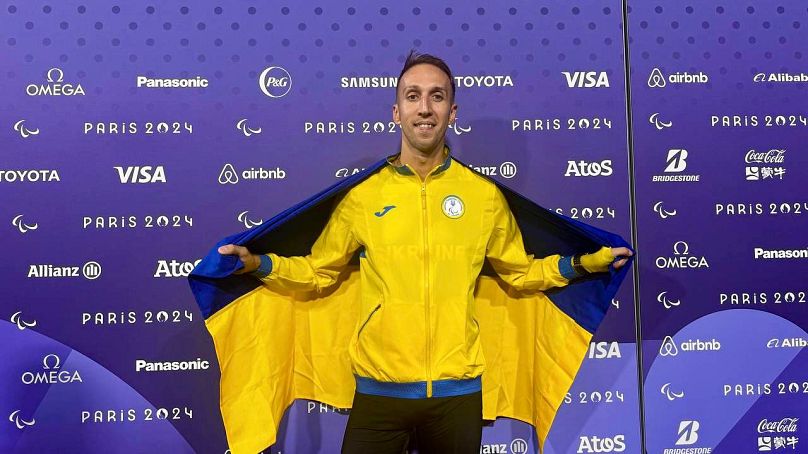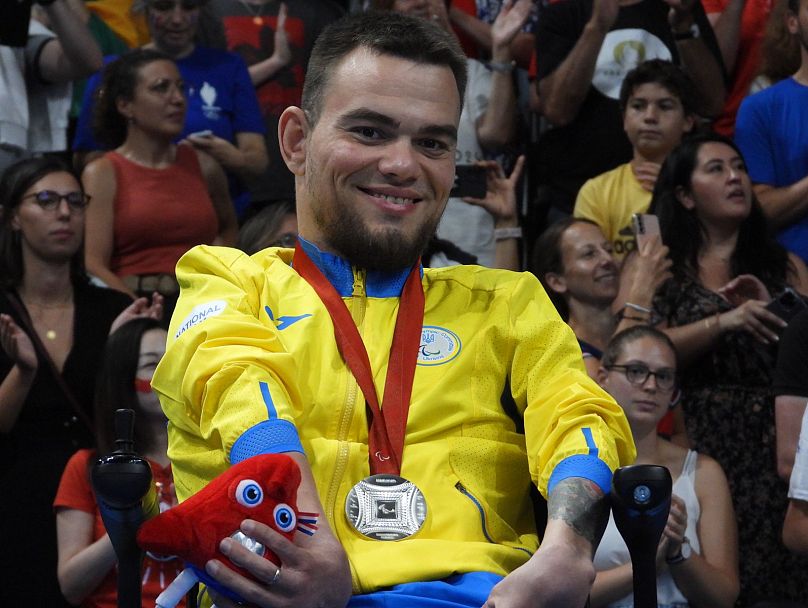Russia destroyed or damaged around 500 Ukrainian Paralympic sports facilities, forcing Ukrainian athletes to prepare for the Paris games in precarious conditions. Yet the team could end up doing better than in Tokyo 2020. Euronews asked some of the athletes how they made it possible.
Ukraine is firmly in the top 10 of the Paralympics medal table despite two years of war that have forced athletes to train in brutal conditions.
 ADVERTISEMENT
ADVERTISEMENT
 ADVERTISEMENT
ADVERTISEMENT
Some survived occupation in Mariupol and Kherson or were left homeless in Donbas and Zaporizhzhia — areas that have been ravaged by Russia's war of aggression.
Under the threat of constant shelling, dozens had no alternative but to leave the country.
More than 70% of the others decided to stay and train in Ukraine.
Euronews spoke to some of those who stayed behind to find out what it's like to prepare for the games in a war-torn country.
The constant sound of bombs
When the war broke out in February 2022 and Odesa came under heavy bombardment, long-jumper Oleksandr Lytvynenko immediately left the city amid fears of occupation.
He moved to a village in the Odesa region without any equipment, not even trainers.
"There was no infrastructure at all", he told Euronews. "I trained at a local playground. Children were looking at me as if I were an alien and were laughing."
Due to frequent power outages, there was no electricity and air conditioning. In the hottest months, there were days with temperatures reaching 45°C.
Nights weren't any better. Lytvynenko was going to bed under the incessant noise of bombs.
"I couldn't sleep. Every night was like that. And in the morning I had to get up and train and do my job to prepare for the Paralympics," he said.
Russian athletes 'call us Nazis'
Despite two years of training in hellish conditions, Lytvynenko managed to win a bronze medal at the Paris Paralympics.
And yet, he's a little bit disappointed, he said. In the competition, he finished behind Russian athlete Evgenii Torsunov.
Lytvynenko explained that there is acrimony between Ukrainian and Russian athletes in the Paralympic Village.
Russia and Belarus are banned from both the Olympics and Paralympics due to the war in Ukraine. Eligible athletes who hold either a Russian or Belarusian passport are allowed to compete under a neutral banner, however.
"They call us Nazis when we bump into each other", Lytvynenko said of the Russian athletes. "They're provoking us, hoping to get reactions on camera. They're not neutral at all".
Euronews reached out to the International Paralympic Committee for comment on the allegations. It said that, as things stand, it hasn't received any complaints from NPC Ukraine — the country's Paralympic committee — with supporting evidence.
Life goes on for war amputees
Anton Kol, a swimmer from Dnipro, said not one but two sporting facilities were badly damaged there. He was taking a stroll outside with his son during the shelling.
He then moved 30 km out of the city for training and won a bronze and a silver medal at the Paris Games.
"I was trying to be strong", he said. "I wanted to be strong for our soldiers."
Leaving Dnipro when the Paralympics are over is not an option, even though the city remains under bombardment.
"I will go back there. I love my city. I have to be there," he told Euronews.
"I'm now helping war amputees with their rehabilitation," he said. "I want to show them that life continues even after that."












